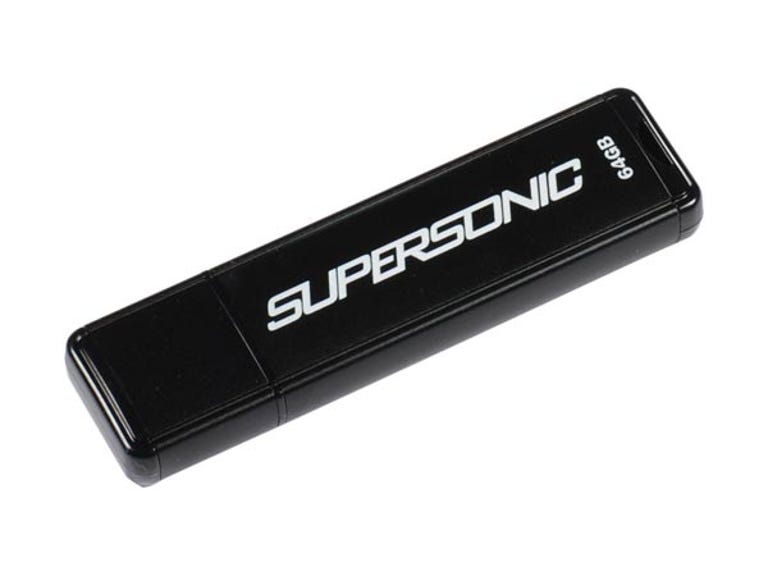 Why You Can Trust CNET
Why You Can Trust CNET Patriot Supersonic USB 3.0 (32GB) review: Patriot Supersonic USB 3.0 (32GB)
Patriot's Supersonic isn't as good as having a solid-state drive in your back pocket, but for the price it's not bad at all.
USB 3.0 sticks are starting to proliferate, and even if Intel hasn't yet managed to integrate a controller into its own chipsets, laptop makers aren't waiting. You can usually tell USB 3.0 ports by the tongue being coloured blue, or by an "SS" label above the port, standing for "Super Speed".
The Good
The Bad
The Bottom Line
Patriot has been around the memory game for a while, and its Supersonic USB 3.0 stick, apart from its blue USB connector, looks much like any other USB stick.
On paper the sequential read and write speeds of 100MBps and 70MBps respectively aren't rated as highly as say, a SandForce-powered solid-state drive (SSD), but it's certainly a lot better than your standard mechanical USB 2.0 external hard drive, at least on paper.
Plugging the stick into a GA-USB 3.0 controller card through a PCI-E 2.0 connection, we used CrystalDiskMark to benchmark the stick, with a randomised pattern.
While the competing Kingston drive barely comes out on top, the Patriot represents a much better choice due to the physical size. While not a small stick, it will at least not interfere with other USB devices you may wish to plug in, whereas the Kingston stick is positively obese.
It's definitely not pushing the limits of what USB 3.0 can do, but the new generation of USB flash drives are leagues ahead of their USB 2.0 competitors.
Patriot's Supersonic may not be as good as having an SSD in your back pocket, but for the price it's not bad at all.


